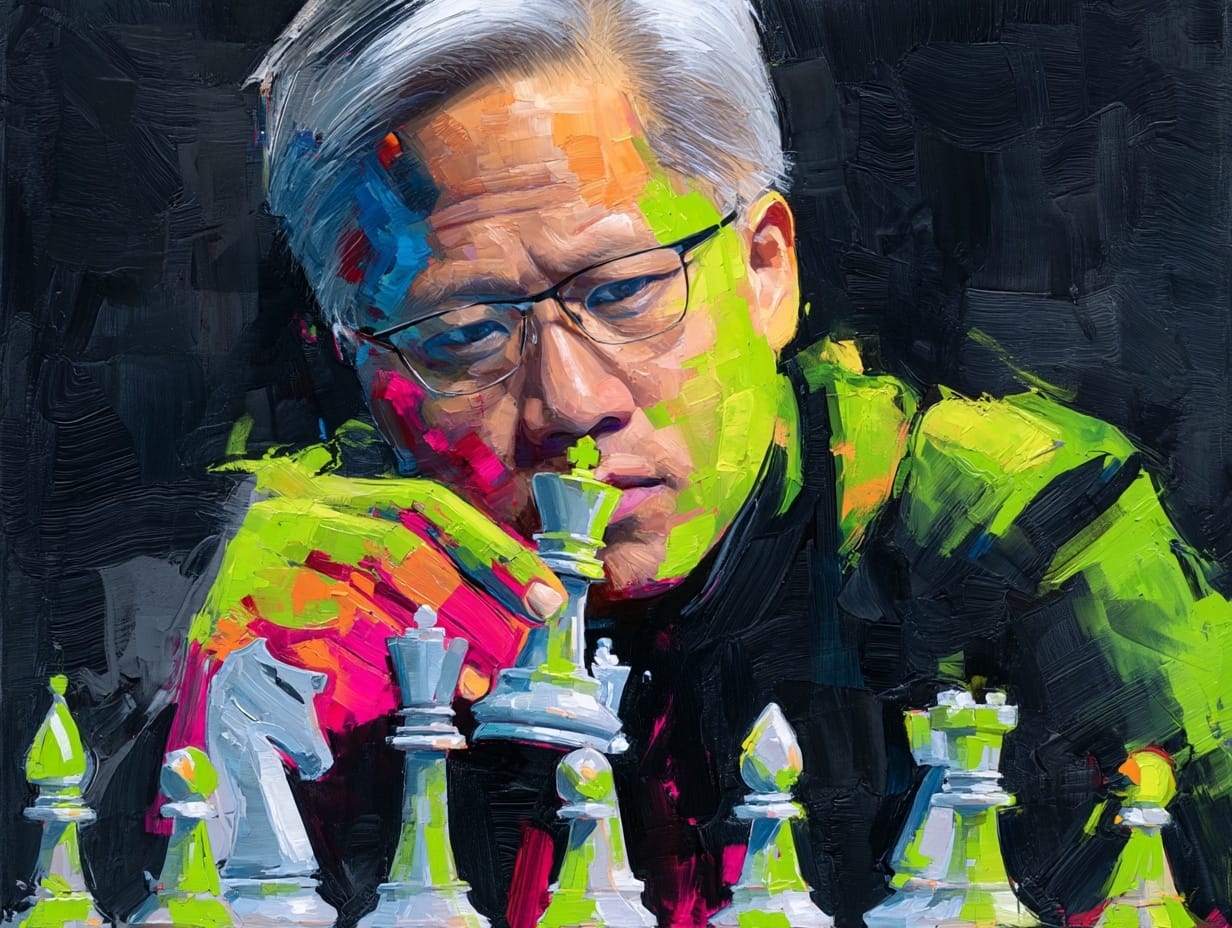If you've ever watched two enormous sea creatures perform the underwater ballet, you'll understand what happened before Nvidia and Intel decided to mate vigorously. One moment they were circling each other like suspicious cetaceans, the next they were executing synchronized spirals that would make marine biologists weep with joy and antitrust lawyers reach for their tranquilizer guns.
The partnership announcement bloomed like an exotic flower that had been crossbred in some corporate greenhouse, producing a hybrid species that Wall Street bees couldn't quite classify but knew they wanted to pollinate. But beneath the orchestrated enthusiasm was something far more primal. It was the ancient corporate ritual of turning your enemy into your pet.
Intel's Gaudi accelerators had been playing the role of technological David, slinging stones while wearing sensible shoes and carrying a calculator. The chips promised to deliver artificial intelligence on a budget, like a generic cereal that claims to taste just as good as the name brand. This wasn't false advertising. Gaudi could indeed process neural networks with reasonable efficiency, much the way a skilled home cook can produce a satisfying meal without the equipment favored by celebrity chefs.
The appeal was visceral for enterprise customers suffering from what psychologists might recognize as Nvidia Fatigue Syndrome (NFS), which is the exhausting cycle of desire, sticker shock, and reluctant capitulation that characterizes most interactions with market-dominant technology vendors. Gaudi offered something increasingly rare in the silicon valley: a chance to feel clever rather than exploited.
The neurology of corporate embrace
What Nvidia accomplished transcends mere business strategy and enters the realm of applied psychology. Consider how certain parasites don't simply invade their hosts but rather reprogram their behavior, turning victims into willing collaborators in their own subjugation. The wasp that convinces a spider to weave a cocoon, the fungus that transforms ants into zombie architects of their own demise.
Nvidia approached Intel with a proposition that activated every reward pathway in the corporate brain. Here was validation from the industry's reigning deity, a $5 billion dopamine hit, and the promise of relevance in an AI-dominated future. Intel could abandon the exhausting pretense of challenging CUDA's hegemony and instead become CUDA's most essential enabler.
The genius lies in how this arrangement satisfies both parties' deepest neuroses while appearing to threaten neither. Intel gets to play with the cool kids without having to develop its own coolness. Nvidia eliminates a potential rival while gaining access to Intel's manufacturing prowess and x86 expertise. Everyone wins, except for the abstract concept of competition, which suffers a quiet death alone in the dark.
Alternative futures
What happens to Gaudi now resembles the end of the universe. There's probably no dramatic moment of death, just a gradual fading of motion until everything eventually stops. Intel's AI accelerator program becomes the corporate equivalent of a vestigial organ, present but purposeless, maintained more from habit than necessity.
Imagine an Intel representative walking into a boardroom carrying two briefcases: one contains a partnership with the undisputed king of AI, backed by billions in guaranteed revenue and the kind of technological credibility that makes CFOs vibrate like contented kittens. The other briefcase holds Gaudi, now resembling a promising but increasingly irrelevant science project that even its creators seem to have abandoned for more exciting opportunities.
Enterprise customers, already suffering from decision fatigue in a marketplace that changes faster than fashion trends, face a choice that isn't really a choice at all. Betting on Gaudi now feels like investing in a blockchain startup after the founder has taken a job at Goldman Sachs.
In the end, Jensen Huang has achieved something that would impress both Sun Tzu and Charles Darwin. It was a victory achieved through environmental manipulation rather than direct confrontation. Instead of destroying Intel's AI aspirations, Nvidia has transformed them into extensions of its own ecosystem. Intel becomes a specialized organ in Nvidia's technological body, essential for certain functions but incapable of independent thought.
The partnership creates what systems theorists call a stable attractor, which is a configuration so energetically favorable that other arrangements become effectively impossible. Like water flowing downhill, market forces now naturally channel Intel's capabilities toward serving Nvidia's vision of the AI future.
Gaudi persists as a kind of technological fossil, occasionally displayed to prove that competition once existed, but no longer capable of meaningful evolution. In technology, as in evolution, timing matters more than merit.
